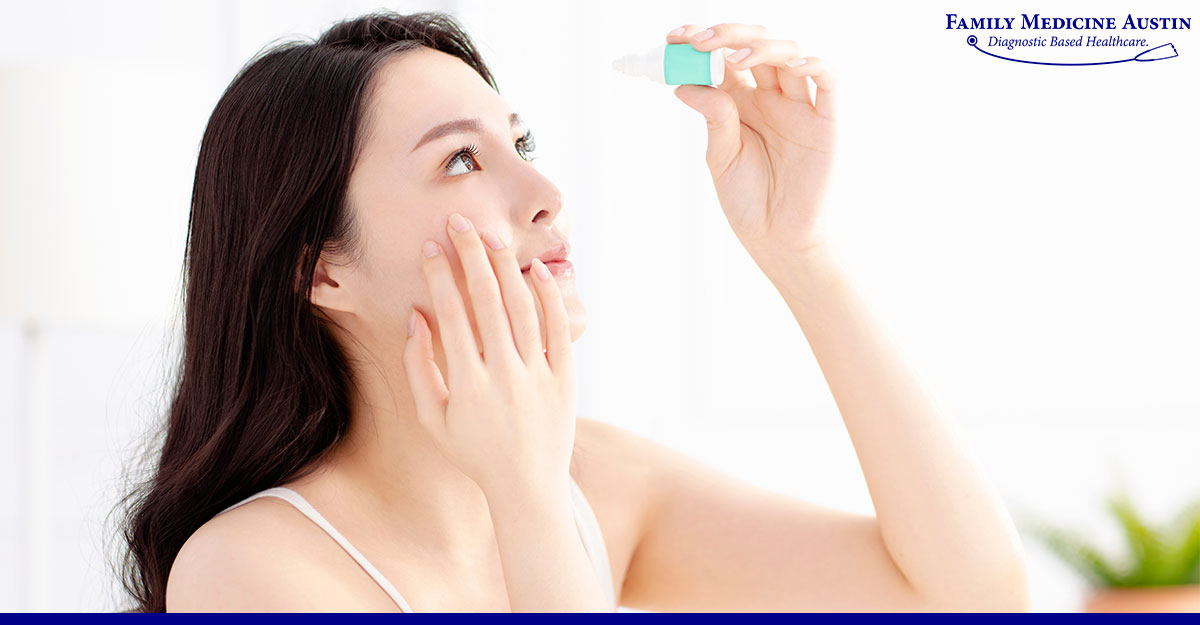
Are you experiencing eye allergies during pregnancy? Are you worried about using eye drops that could harm you or your baby? We are here to tell you that allergic reactions are normal during pregnancy. They can range from mild to moderate to severe and generally involve the nose, the throat, other organs, or sometimes the whole body. Eye allergies also commonly occur during pregnancy and can cause extreme discomfort and pain.
However, that does not mean you have to suffer! There is plenty of safe-to-use over-the-counter eye drops for pregnant women. Read ahead to determine which allergy eye drops are best for you while pregnant.
Allergies are reactions of the human body to harmful substances called allergens. These allergens may not necessarily be dangerous for you; your body tends to react differently. These allergic reactions can occur in the eyes, the respiratory tract, the skin, the gastrointestinal tract, or anywhere else in the body.
The primary mode of transport of allergens from the outside environment into our body includes by mouth or nose. Other passages may include any cuts and tears in the skin, especially by skin contact. Eye allergies are caused by pollen, dust, pet dander, and mold that enter the eye. People commonly use allergy eye drops while pregnant to tackle their eye allergies. During pregnancy, the mother’s immune system tends to get stronger to protect her and the developing baby from infections and keep them both healthy.
Allergic reactions might tend to be stronger during pregnancy than one might expect, owing to the newfound strength of the mother’s immune system. Some women with no previous symptoms of allergies will inexplicably start developing them during pregnancy. Women who have allergies before pregnancy complain of getting worse during this period, with the symptoms increasing up to 30%.
Allergies are exacerbated, remain the same, or decrease significantly during pregnancy. These allergies can be seasonal or occur due to exposure to an allergen. They usually present as itchy, irritated, or watery eyes. Some common symptoms of eye allergies include:
These eye allergies not only influence the ability and quality of sleep but also increase the chances of infection and feelings of general discomfort. Usually, eye drops are used to treat eye allergies in pregnant women as a topical treatment. Most eye drops consist of a medicated solution that is applied on the eye’s surface in the form of reductions to soothe the irritation and other symptoms. They provide targeted relief from the symptoms, reducing the itching and redness.
Some substances women use during pregnancy, whether ingested or applied topically, have a high chance of crossing the mother’s placenta. Subsequently, they might cause harm to the developing baby in her uterus. Therefore, women must be careful about the drugs and medicine they consume during pregnancy, as they might contain teratogens.
Teratogens are harmful substances that can cause fetal abnormalities or congenital disorders in the embryo when exposed to them in utero. This is particularly important to consider during the early stages of pregnancy or the first trimester when the baby is in the initial stages of development.
Therefore, it is essential for women suffering from eye allergies to use teratogen-free eye drops while pregnant. They should only be used when there is a clear need to decrease the chances of harm or when they are medically required and prescribed by a practicing physician. Pregnant women often overlook the risks and potential teratogenic effects of some medications they might be using. Always consult your doctor before using allergy eye drops during pregnancy for your and your baby’s safety.
Eye drops containing sodium cromoglicate are considered safe during pregnancy to treat allergies. These eye drops do not have teratogens and are not harmful to the body. Additionally, only a minimal amount of it enters the mother’s body.
About 650 women used sodium cromoglicate without experiencing any congenital disabilities in the baby, which makes it safe for use by pregnant women. Sodium cromoglicate in allergy eye drops while pregnant does not require additional screening or monitoring of the baby. The fact that very little of it enters the mother’s body and crosses the placenta provides extra reassurance that it cannot be harmful when used in eye drops for pregnant women. Common prescription allergy eye drops safe during pregnancy include Restasis and Xiidra.
Sodium Cromoglicate is a substance that inhibits the release of histamines (a chemical that mediates allergic reactions). It also stabilizes mast cells that contribute to the release of histamines in allergic reactions. For the treatment of eye allergies, it is used in a 2% w/v solution in eye drops. As sodium cromoglicate does not cross the placenta and the risk of exposure to the fetus is very low, it is considered safe for pregnant women to use in allergy eye drops.
Allergy eye drops used while pregnant is safe when the antihistamine is sodium cromoglicate. However, those containing Travatan, Xalatan, Lumigan, Xalacom, and Brinzolamide are contraindicated because they outweigh the adverse effects. Always consult a health practitioner before using any allergy eye drops while pregnant to ensure safety.
To administer eye drops during pregnancy, keep the following things in mind:
It is advised by medical practitioners to discontinue the use of contact lenses and wear glasses instead until your condition is fully treated.
Eye allergies can also be mistaken for Keratitis, Acute glaucoma, infective conjunctivitis, or iritis. If these are left untreated or only treated with eye drops while pregnant, they can cause severe harm to the mother or the developing baby. It is essential to consult a medical practitioner when suffering from allergic reactions during pregnancy, with a detailed medical history of your condition and the medications currently under use.
Family Medicine Austin offers quality healthcare for all stages of life for you and your family, including pregnancy, and the best treatment for allergies throughout the Austin and Leander, Texas, area. Head to our website today to learn more about our treatment plans and wide-ranging health services!